Okay, picture the scene: it’s a Saturday afternoon in mid-June and there’s about 150 of us on the ground floor of a low income housing building on the Lower East Side of Manhattan. During the week the space is used as a PROS program through an agency called Community Access, but today it has been taken over by a new organization holding their founding event: the Institute for the Development of Human Arts (IDHA) who is hosting “Making New Meaning: A School for Innovative Voices & Visions.” IDHA defines itself as “a radical mental health initiative that brings together like-minded clinicians, peers, and mental health workers who are dedicated to exploring the links between personal and societal transformation.” They are determined, in their own words, to “create and strengthen communities of practice around transformative mental health care” and “encourage professionals and non-professional community members alike to explore multiple perspectives, always prioritizing the agency of individuals and communities.” So what does this new project look like on the ground?
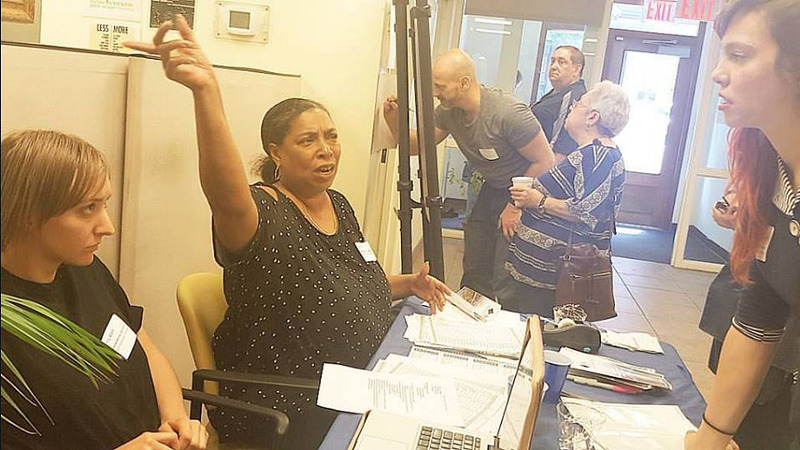
Well, I’ll give you my perspective as someone who’s been around the mad movement for a few years and has recently been working on both sides of the non-professional and professional worlds. I was at some of the initial IDHA organizing meetings but I didn’t help organize this event, so all these opinions and perspectives are my own, not IDHA’s. First of all, on Saturday I walked in the door and was immediately greeted by Celia Brown, who was one of the original Peer Specialists back in the early ’90s and now works Bureau of Recipient Affairs at the Office of Mental Health. She was there at the front desk with Emily Allan, who’s a young creative neighborhood artist and NYC Icarus Project member. I thought I was getting there on time but the place was already packed with people.
As I made my way through the crowd, seeing some old familiar faces and a bunch of new ones, it reminded me a bit of the event a few weeks ago when we showed the film CRAZYWISE and there was a mix of folks from the community: folks who use the services of the system, folks who are working in that system and folks who are just looking for connection from likeminded souls. These days I spend way more time on social media than I do in rooms full of actual people and it feels so good to be in rooms full of actual people, some of whom I only ever see on the screen!
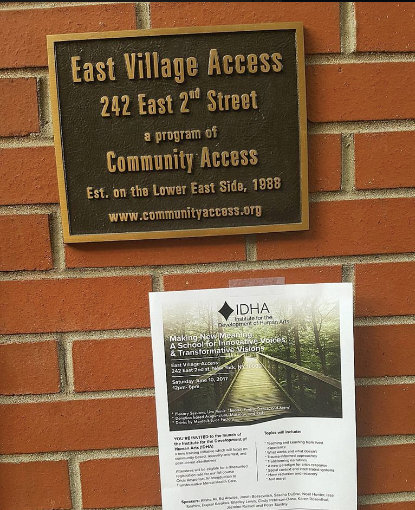
There was a lot happening in the space: there was a main hall with panels and performances, there was a room where people were getting acupuncture and massages and Reiki, there was a room just to chill out, there was a big open space where people were talking and eating food, and then there was a scene of folks hanging out outside on the street. I walked into the main hall and there were at least 100 people sitting there watching the first panel.
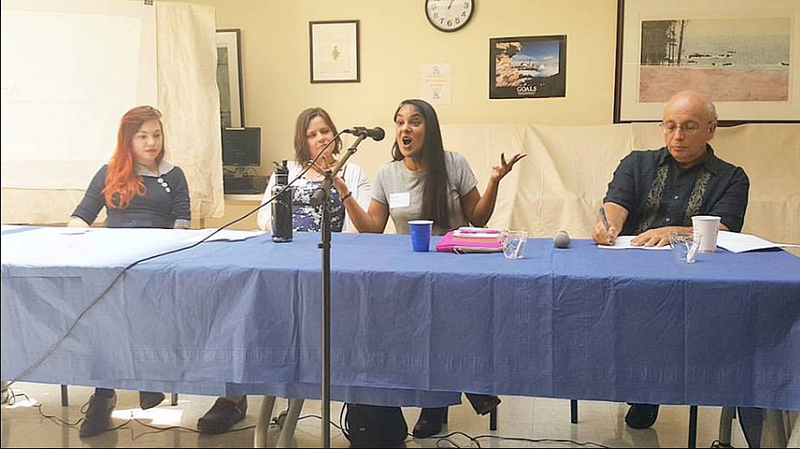
I took a seat just as Jazmine Russell was talking about her vision of mutual aid and community building practices, and how her history of child sexual abuse has informed the way she thinks about the changes that need to happen in the mental health system. She has a degree in Applied Psychology and these days works as a Peer Specialist on a mobile treatment team in Queens. As one of the main faces of IDHA, Jazmine’s humble bravery and spiritual practice lends a lot of credibility and grounding to the group.
Alisha Ali speaks next. As an Associate Professor in the Department of Applied Psychology at NYU her research focuses on the mental health effects of oppression including violence, racism, discrimination and trauma. In the system she’s best known for her studies on “depression” which she swiftly puts quotes around. “That’s the language we have to use in the system but we know it’s not about biology, it’s about social context.” Alisha describes a program she researched that proved economic loans in the community did more for individuals than antidepressants. She’s in the academy laying the ideological foundations for a new model of care, a model that is fought against vehemently by the forces of big business and biological psychiatry. As a mother and a Muslim woman who’s not a US citizen, she knows how important it is that we build a movement where the most marginalized are centered. “It’s through the acknowledgment of our differences that we discover our common humanity, but we need to be able to talk concretely about oppression or the work will never get done well.”
Noel Hunter speaks after Alisha, a fiery clinical psychologist whose work focuses on the link between trauma and altered states, human rights, and alternative approaches to healing. She recently got a book deal with Palgrave Macmillan for a book entitled Trauma and Madness in Mental Health Services. Like Alisha, she talks explicitly about the connections between oppression and mental health. “Who here has heard of the ACE’s study?” she asks the crowd. A bunch of hands go up. In recent years the Adverse Childhood Experiences Study has shown that many physical and mental health issues are directly correlated to early exposure to physical and sexual and emotional abuse, emotional neglect, seeing mothers treated violently, household substance abuse, household mental illness, parental separation or divorce, or having an incarcerated household member. “We just can’t talk about mental health in an economic or social vacuum. We need to talk about systemic oppression. That’s why we’re here creating something new.”
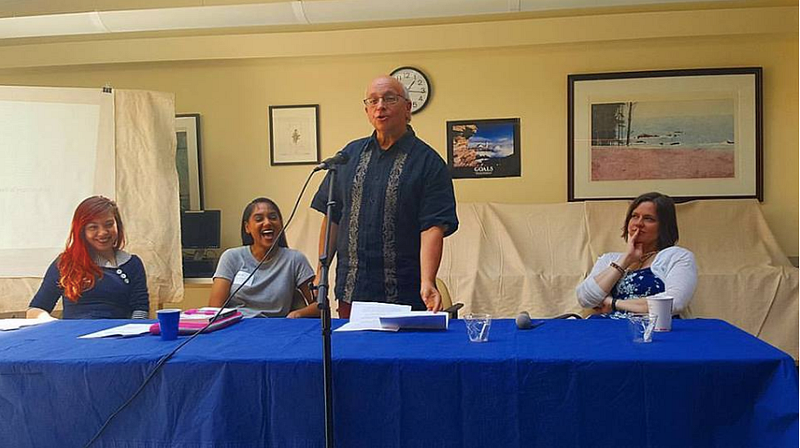
Peter Stastny finishes the first panel. As the elder of the group, he’s the self-chosen, pragmatic voice of “What works and what doesn’t work,” having been around and active since the 1980s and watched so many progressive mental health projects become defunded or co-opted or simply slip into obscurity. It’s obvious he wants this project to have a different fate. For a self-proclaimed radical, Peter brings a sense of institutional legitimacy to the group, and three decades of connections to people inside the system count for a lot. Many of the older people in the audience are there because they know Peter and respect his work. He was right there in the Bronx in the early 90’s with Celia when they were developing the first Peer Specialist program. He was one of the founding members of INTAR (International Network Toward Alternatives and Recovery), which has created a network of clinicians all over the globe who are dedicated to transforming the mental health system. He’s all about using whatever power he has to support and raise up the voices of psychiatric survivors and creating alternatives. And this project is clearly close to his heart.
Delicate Ecology of Arts and Radical Mental Health and Riff-Raff
So that was how the day started, and went on until the late afternoon: a mix of more panel discussions and then amazing performers—musicians and poets and even a comedy troupe. Young trans mixed-race badass Nikomeh Anderson got up in front of everyone and performed “The Dystopia of Normalcy” about race and gender and identity, putting themselves out there with their huge heart. Issa Ibrahim, the author of The Hospital Always Wins, played his songs about being locked up in Creedmoor Psychiatric Hospital for two decades and blew away the crowd with his realness. Rebecca Stabile sang her anthem “Crazy People” and a bunch of other songs that brought us all together.
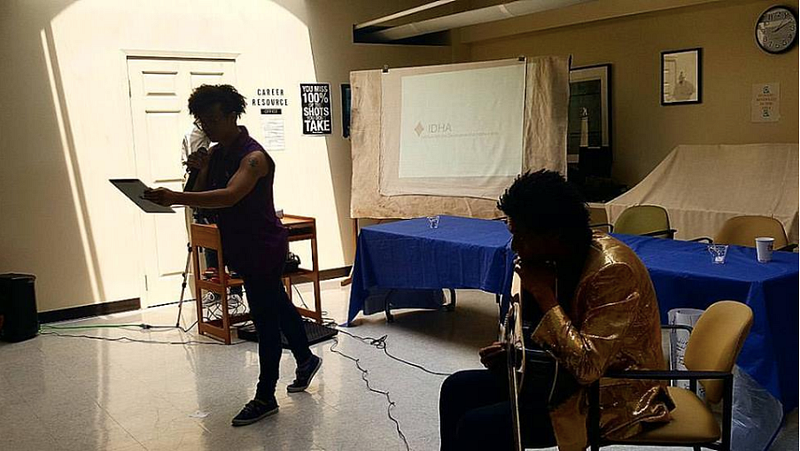
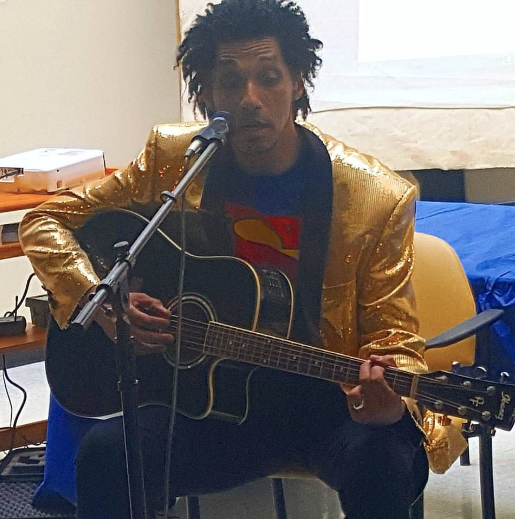
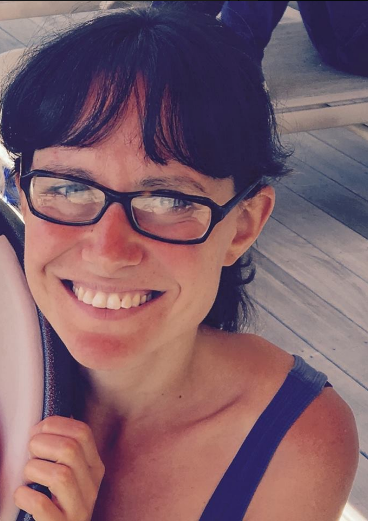
The folks hanging out outside the conference played an important role in the dedicated ecology of our growing movement. Daniel Mackler, former therapist turned film maker and now riff-raff world traveler, laughs and says to me: “Yeah these days I don’t have the patience to sit there and listen to people on panels talking about mental health. I’d rather sit out here and play guitar and talk to strangers.” Another outspoken Peer Specialist who works in the system says to me: “How can you even stand sitting in that room? I’d never make it through college if it was like that. A bunch of people just talking and talking…”
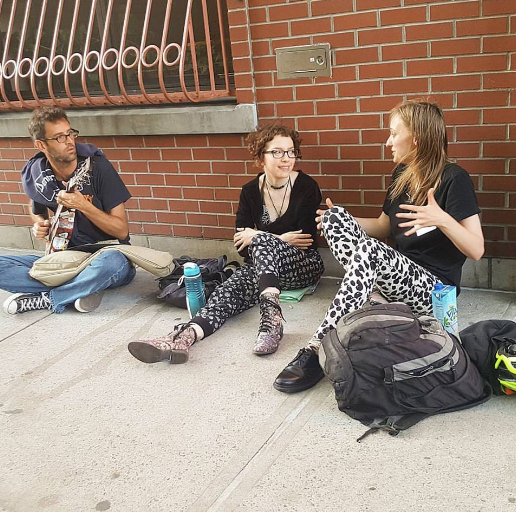
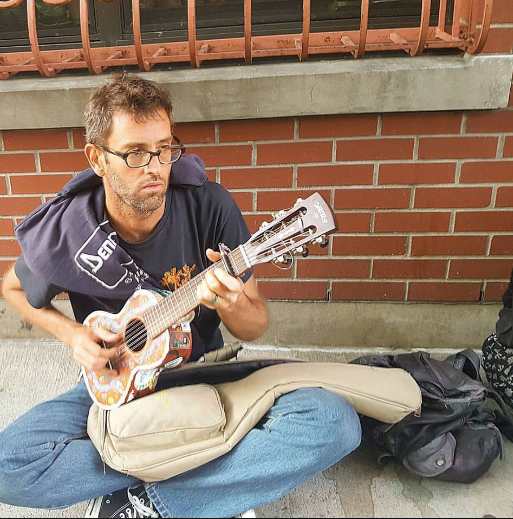
There was plenty of conversation happening outside the conference room. There was a whole crew of folks who came together from the Philadelphia Icarus Project chapter. One of them says to me: “We’ve been having meetings regularly for a year and we’ve learned some things that might be worth sharing with other groups.” I see them hanging out with the folks from the NYC Icarus local. I meet one of the Peer Specialists from the program I work on in the system who’s come all the way from Westchester. I see my friend I’m usually only talking to on social media and it’s nice to put a face to text. I see Steve Coe there the whole day, the executive director of Community Access, who blends right in with everyone else.
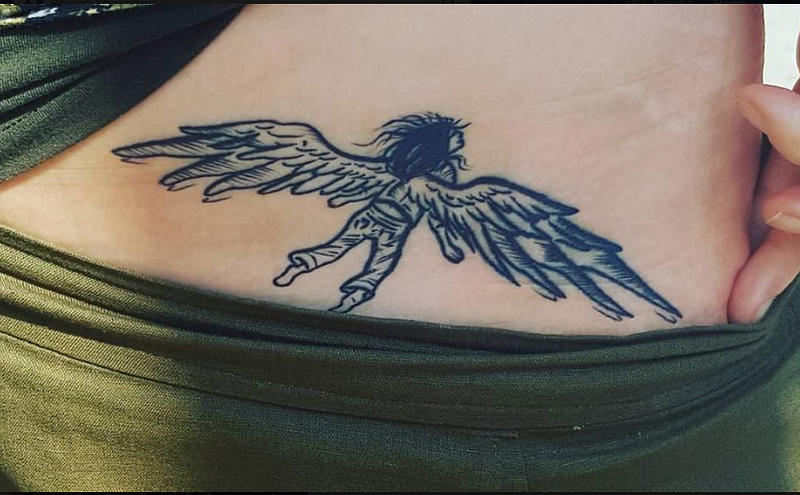
The Confluence of Movements
Part of the beauty of IDHA is that it rests at the confluence of multiple movements and generations and there are some super talented and passionate people involved in the mix.
When Cindy-Peterson-Dana got up in front of everyone and told the story of her teenage son coming through what could be called a two-week episode of psychosis we were on the edge of our seats. Cindy herself had been hospitalized as a teenager, became a clinician in the 80s and then came out as a peer in the early 90s after being inspired by others like Celia Brown and Howie the Harp. She knew that there were other ways to deal with her son’s extreme state. Her family was able to set up a home respite and use a dialogic approach with a few nights of sleep meds to come through her son’s experience without hospitalization. Having a mother who is familiar with things like Open Dialogue, is a fierce advocate for her son, and happens to be the Vice-President for Peer and Recovery Support Services for the Mental Health Association of Westchester is an incredible asset to the group.
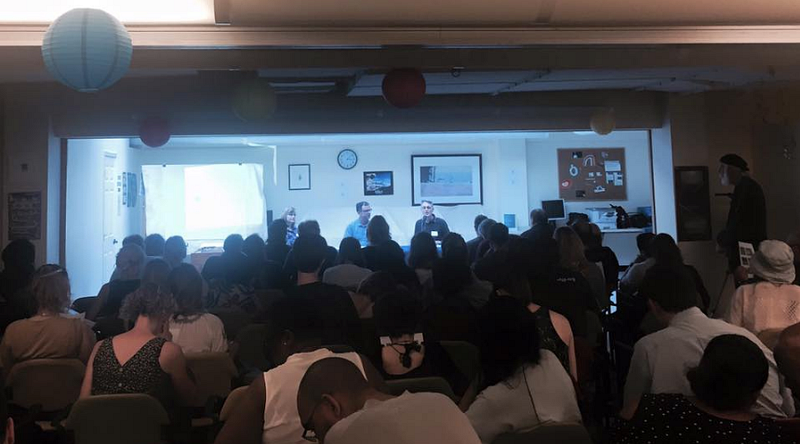
Ed Altwies, the program director for the Parachute Mobile Treatment Team in Queens is another member of the group who brings so much to the table after years of experience practicing Open Dialogue with hundreds of families. He told the story of what it was like for him as a young clinical psychologist entering the public mental health system and what a horrible and dehumanizing process clinicians have to go through to earn their stripes. I couldn’t help but wonder what some of the members of the audience who are recipients of care thought about histories; if they shed some light on why the system is so broken.
Bradley Lewis is another gift to the community. A psychiatrist who went back to school to get a PhD studying Foucault in order to make sense of his profession, and then spent years articulately dismantling the biopsychiatric framework in favor of a plurality of voices and visions. Brad gave a talk on the power of narrative strategies and what the arts and humanities bring to the healing professions. He talked about the capacity to tolerate uncertainty and the movement language of “Nothing About Us Without Us.”
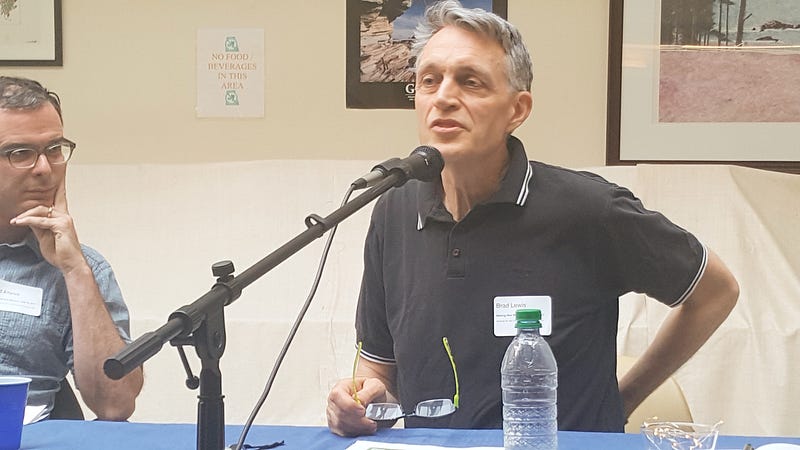
So all those people are really great but if you really want to know the story of where IDHA comes from I could probably shed some light on it.
As far as I can tell, the birth of IDHA can be traced to one night a little more than a year ago when Peter met Jazmine at a NYC Icarus event at Bluestockings Bookstore on Allen St. Jazmine, in her early 20s, was leading a discussion with a room full of young activists about the power of Crisis Plans and Mad Maps and advanced directives to rally support and build community. Peter had a history of trying to use psychiatric advanced directives in the system and they got to sharing stories.
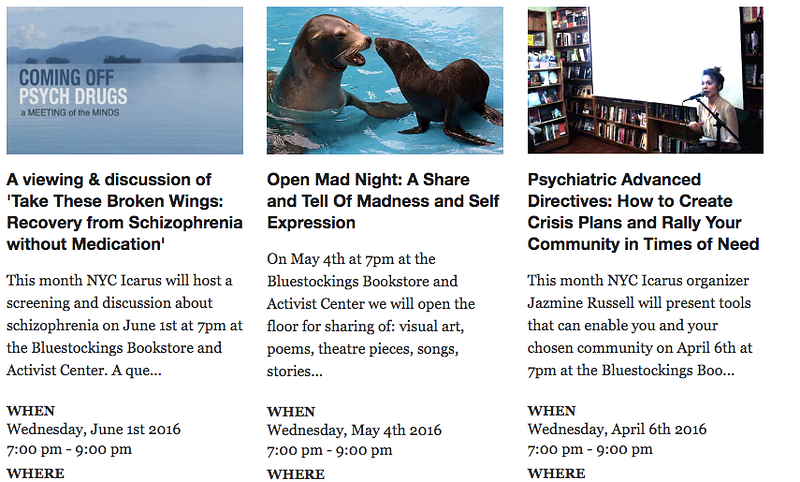
I wasn’t paying attention to what happened but the next thing I knew I got invited to a planning meeting for starting a new organization. The food at the first meeting was good so I came back. And so did a few more people. And from there it grew: monthly meetings in Peter’s psychiatry office in Chelsea, a small cast of characters — artists, visionaries, people working in the mental health system, people using the system’s services, people trying to stay the hell away from the system’s services but needing support and wanting community.
I was struck by the commitment and vision of the people in the room. Sarah Quinter was a young activist and artist who had cut her teeth as a teenager in the last days of the squatters movement in the Bronx and was now working in a multi-racial coalition to fight against the gentrification of her neighborhood in Bushwick, Brooklyn. She came to a meeting and made it clear to Peter and everyone else that if the project was going to be relevant it had to have a clear analysis around oppression and center the perspectives of economically and socially marginalized folks. She herself was barely surviving, struggling with poverty and a personal legacy of childhood abuse that she was in the middle of coming to terms with. Jaz and Sarah and Peter worked together on the initial IDHA proposal. With the help of some connected friends they raised some seed money with an idea for developing the organizational infrastructure for a training institute and some initial classes.
A year of meetings later we were all here at this kickoff event.
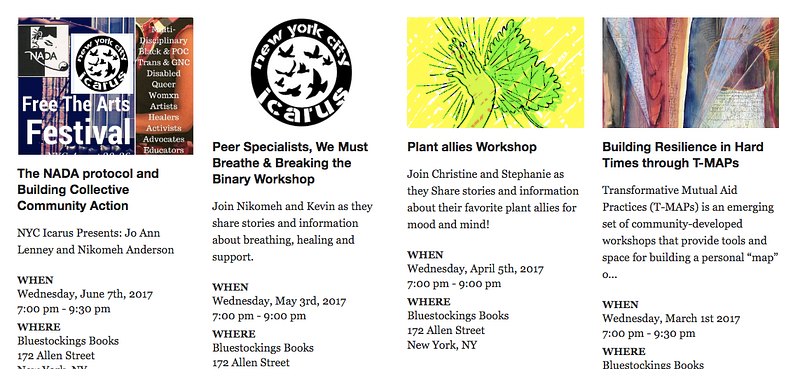
The Mad Underground Rises to the Surface
I think it was Jonah Bossewitch who said it straight up when it was his turn to speak: what was happening at this event was something different than the historic Consumer/Survivor/Ex-Patient Movement. Projects like IDHA represent a new wave of resistance that is less about human rights and individual choice and more about the insistence on full-fledged participation in our own healing, and more importantly, in healing by and through community. There’s also something about the collaboration between people working on the ground and people in the academy, collaboration between Peer Specialists and conscious clinicians, collaboration between artist movements and mental health activists. Jonah used the language of the “Mad Underground” to talk about grassroots groups like The Icarus Project that focus their attention on building alternatives and creating space for dialogue. Karen Rosenthal & Duysal Karakus, trainers from Community Access, talked about the Harm Reduction Movement and the need for the people who are struggling themselves to be at the forefront of the movement.
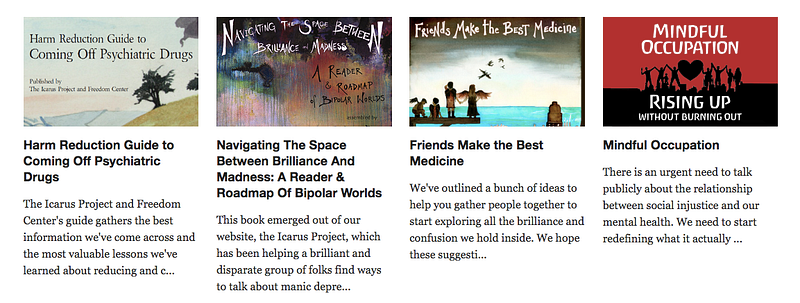
Epilogue: Intergenerational Transmissions and Visions for the Future
Hours after the event officially ends there are still a group of us eating and drinking at a nearby restaurant. A small crew, but we’re representing three generations of activists. Laurie Ahern is the elder: a co-founder of the National Empowerment Center, she’s now the director of Disability Rights International. She’s full of wild stories. One of them goes something like this:
“We started the Alternatives Conference in 1985. Then there was the time NAMI National called me and Dan Fisher into their office and straight up told us that if we kept talking about Recovery from mental illness our funding was going to get cut. And basically we told them to go fuck themselves. And then our funding got cut. But there was enough of a movement resistance that people put pressure in the right places and the next year the Alternatives Conference kept happening.”
I’d never heard that story. The Icarus crew in New York City are mostly millenials, some folks like me that are somewhere in between, not so many older folks. Laurie’s talking about the power of hope. About how necessary our stories are to tell and be proud of. She’s giving us a lot of props for our bravery and doing the work we’re doing and also talking abut how her generation pushed the language of Recovery and how important that was to get us where we are today.
Jonah says: “But Recovery has the language of illness embedded in it, that’s why it works for the system. You have to be sick to recover.”
Laurie replies passionately: “Recovery was never about recovering from an illness, it’s about recovering from the label of illness, it’s about recovering from having your freedom taken away, about not being able to make decisions for yourself because you’re considered incompetent. It’s recovering from having your life stripped away from you.”
Sarah says: “But what about when you’re so young and you’ve never been considered competent to begin with? What are you recovering from then? I like the language of
‘transformation’ better than recovery. I’m not trying to ‘recover’ something I’ve lost, I’m trying to figure out how to grow into what I want to be.”
It’s a conversation happening a lot these days.
I’m grateful for the intergenerational transmissions and the camaraderie of this next generation of the movement. I’m inspired by all the hard working characters behind the scenes who tangibly make me feel less alone in the world. I’m happy to be around people who disagree, as long as we agree on the important stuff. Like Alisha Ali says, it’s through the acknowledgment of our differences that we discover our common humanity, but we need to be able to talk concretely about oppression or the work will never get done well. This group of people is determined to learn from the mistakes of the past and build the foundations for a movement that can take the pressure the future is surely going to dish out.
If you want to learn more about the Institute for the Development of Human Arts check out their website here.
If you want to contact them or donate to them here’s the way to do it.
If you want to sign up for their first series of courses that begin in the fall do it here.
Mad love as the Summer hits the city. We’re here! We’re growing! Nothing About Us Without Us!















Wow! This sounds productive, fun, and revolutionary! And it was SO brave to hold this event in a state with the WORST “mental health courts” in the country.
Laurie Ahern is right. Mainstream psychiatry is sicker than any Madness. Nothing but psychiatry has ever made me want to die.
Report comment
What is all this talk about “mental health”, thumb suckers and nail biters? Isn’t that a lot like ‘normality”? I’ve screened for it, and it is nowhere to be found. Believe me, I’ve looked. It must be smaller than a quark if it’s anywhere. It keeps slipping out of the holes in our butterfly nets. You ever been tickled by a person asking to “feel your wound”? Don’t heal me. I’m fine with my madness. It’s not a mad, mad, mad enough world for me anyway. The “mental health” treatment system is a big part of the problem. It is also anything but what people keep claiming it is, that is, “broken”. It only works too well. I wish it were broken. If we could break it, we would be liberating a great number of people. Eventually, hopefully, that is something we might be able to do, shatter the “mental health” torture system. When “mental health” torture is added to the junk heap of redundancy, then, and only then, will we have the last laugh. Until then, practice, and you will be the kind of a sap the “mental health” cops, the conformity goons, and the establishment NAZIs want you to be. Dull as a wrong turn, many miles back, to boot.
Report comment
“Radical mental health” is a blatant contradiction in terms.
“Peer specialists” desert! — You have nothing to lose but your chains, and ours. And your salaries. And…oh, never mind. Back to the primrose path.
Report comment
Wow sounds like a great gathering and wish I could have been there to be transformed. On the discussion of recovery that Laurie Ahern and Others engaged in, I was also involved in the struggle to keep the funding for Alternatives and for all the SAMHSA funded c/s/x activities. It was and remains an annual battle, today more than ever and much of the controversy continues to be over the competition between the pathological medical model and recovery through empowerment paradigm. Recovery may seem like an overly clinical term and today it is used that way by the system, but as Laurie said the c/s/x movement has used it as “recovery of a full life after being marginalized by the label of mental illness which was really trauma” or for young people who have not yet been labeled recovery of life after trauma. Some of us still use it and it is still dangerous enough that the Murphy/Torrey axis wants the recovery of life movement crushed with the the take your pills and shut up medical model.
I have just published a book on this topic called “heartbeats of hope” subtitled”the empowerment way to recover your life.” It’s available through NEC.
Report comment
I’m with Daniel and have a hard time when people seem to throw the baby out with the bath water. My wife was severely TRAUMATIZED as a young child and I am helping her heal and move toward more healthy ways to think, feel and live. Her brain literally was ‘wired’ toward dissociation of those traumatic events and so I’ve had to help her re-integrate those traumatic events into her ‘personal narrative’ and undo the lies associated with them. And something the d.i.d. experts don’t understand is that when the brain dissociates the trauma along with it go parts of the person’s mental abilities and personality traits that otherwise would have been available.
So I’m still struggling with this attempt to ‘normalize’ the effects of trauma. It does leave real issues in how the brain is wired and thus how a person can function. It doesn’t mean it can’t be undone, i.e. neural plasticity or therefore that the brain is ‘forever sick’. And that acknowledgment doesn’t mean I can’t treat my wife with full respect, love and give her complete agency WHILE I also am willing to mentor and teach the various girls in her d.i.d. system better ways to approach life.
But after all that is said, Sascha, this sounds like an awesome event. I wish they had something similar in Ohio…
Sam
Report comment
Sam, I thought of you today when someone said to me that the people they know who have made solid recovery from trauma have all had at least one person in their lives they could trust that truly had their back. I have two of those people in my life and it sounds like you serve as that solid support person for your wife. If only everyone was so lucky to have that kind of support.
Report comment
Hi KindredSpirit!
Yes, that was one of the saddest things to me when I’m on WordPress or when I used to be on PsychForums and people were so desperate to heal and wanted a partner on the journey. I’m happy for you that you have someone in your life, too. I just don’t know how it can be done without at least one strong attachment relationship.
Report comment
Which is the baby and which is the bath water?
Report comment
Hi Oldhead, I had made a second, clarifying comment that somehow got deleted as ‘spam’. Not sure why or why it didn’t get put back when I noted it to the powers that be. But to me ‘recovery’ is the baby, the psychiatric system is the bath water. I’ll copy in my other reply here, if they allow it to stand.
“But Recovery has the language of illness embedded in it, that’s why it works for the system. You have to be sick to recover.”
Sascha, clearly this is a topic that is important to people on this site as I’ve seen it brought up in a number of blog articles. And to be honest, I understand when people who have been abused by the system are struggling with this concept. I guess it’s a struggle I was unaware of over on WordPress and in the little cocoon I created as I helped my wife heal outside the system.
But let me try to explain how I approach this and maybe there is something that those of you who were subjected to the system can take away from it.
One of the biggest issues I had to overcome when learning to help my wife was the Right’s attitude about mental health issues(how I grew up). I was taught ‘it’s just in their head” or that they should ‘just get over it’ or the many other ugly things that I’m sure many of you have heard. I had to learn that these mental, trauma-induced issues were, indeed, every bit as real as a broken leg or other bodily trauma.
Two, I think we would do well to understand that mind trauma is very similar to body trauma. When a person experiences mind trauma, the mind adapts to cope with that trauma the best it can in the absence of true help and healing. The mind will sequester the trauma whether it’s full-blown dissociation like my wife’s d.i.d. or less-severe compartmentalization. It will begin to view current events thru the ‘trauma-lens’ of its past.
It’s very similar to what happens with a broken leg that goes unset and without physical therapy that will cause the person a lifetime of issues as the rest of the body will begin to compensate for the loss of use of that limb. It will put stress and pressure on other joints, the loss of mobility, loss of range of activities one can participate. But even if a person’s leg is immediately set, the body still has to cope with the initial trauma and difficulties during the healing process.
Additionally, we now realize there’s more to healing than just setting the bones which is why we focus on physical therapy too, to retrain the body and re-strengthen the muscles connected to the bones and to retrain the body toward a healthy use of the repaired limb. And yes, a person can emerge stronger from trauma and learn valuable lessons and skills from the experience, but that doesn’t mean we should embrace the coping mechanisms that the body acquired during the trauma and the healing process.
Three, I guess I don’t view or define my wife by her d.i.d. I realize so many of you were defined by your ‘illness’ when you were in the system. Just like that broken leg, I don’t define the person by the broken leg and yet to ignore it as if it doesn’t impair the person is ignoring reality imo. And so I can still completely respect, love and give full agency to my wife while she has d.i.d. without ignoring the real issues that her disorder creates in her life, our family life and our personal relationship.
Four, so in the end I kind of view myself as her ‘personal trainer’ to teach her mind to work in new, healthier ways. As an early, childhood trauma sufferer, she has literally never known what it is to view events from a non-trauma paradigm, and so I help her see things outside that paradigm. But it takes WORK to retrain one’s mind after a lifetime of trauma-bound thinking. That’s what neural plasticity teaches us: that the mind rewards or ‘punishes’ the neural pathways that are used or those that are ignored and ‘sequestered’ because of trauma. And so, after addressing the trauma, I’m helping her re-training her mind to use those pathways that were sequestered for most of her life because of the trauma she suffered.
Five, maybe this explanation won’t resonate with those of you who experienced the harsh cruelties of being de-humanized in the system, but I do have concerns that this movement is throwing out the baby with the bathwater and losing sight of the proper need for ‘recovery’ from the effects of trauma and poor coping mechanisms that a mind uses without proper help. This is especially evident when said trauma happens during childhood as it has for so many. There is a reason many people enter the mental ‘health’ system unwittingly but willingly: because their mind is using unhelpful coping mechanisms as it tries to deal with unresolved trauma.
Thus, recovery to me is about dealing with the trauma AND helping my wife’s mind to move out of the trauma-induced coping mechanisms that tend to get ‘hard-wired’ over time.
Respectfully, Sam
Report comment
Sam, I’d just like to point out that the quote you presented was actually the author quoting someone else, and he quoted multiple perspectives on the topic of recovery. He wasn’t presenting it as his own view, rather repeating a conversation with multiple viewpoints to give an example of the ongoing debate on the topic. In this context, it’s good to be informed about how this debate is playing out amongst those on the front lines, isn’t it?
Report comment
Yes, I do understand that he was quoting multiple people with different perspectives. Like I said in my reply, over on WordPress and at home with my family in our little ‘cocoon’ away from any involvement with ‘the system’ I hadn’t even realized this was an issue. But it seems to keep popping up on this site and it also seems that some who have been abused by ‘the system’ want to totally disavow that they have ANY need for healing and recovery as if to admit that, they would legitimize what was done to them in ‘the system’…and that kind of concerns me. So I guess I was trying to give my 2 cents: how one can affirm the need for healing and recovery without invalidating the humanity and respect that all people deserve…
Report comment
Forgive me, it sounded as if you thought it was Sascha making this specific argument.
I think there is a great deal of nuance on the topic of recovery. From my perspective, I am recovering from damage done by the system as well as damage done in the home but I don’t necessarily agree that it is physical in any sense – my neurology. And I don’t view the idea of recovery as accepting any notion that I was ever ill as some do. Recovery has far broader definitions than those related to illness. We recover from shock. We recover from setbacks. In fact, from my view, recovery means more about regaining something we once had than it does about gaining mastery over emotions or overcoming illness. I am recovering social standing and respect that I once had that was stolen from me by those who maligned me as mentally ill and deficient. So FWIW, there are more ways to claim the word recovery than what you’re dealing with with your wife.
Report comment
Hey Sascha, this was a fun, insightful read. I really felt “there”. I love the differing voices, and how the movement is continuing on in new forms, with new allies (and perhaps new enemies, too). Appreciate you capturing the spirit of this work!
Report comment
KindredSpirit,
I hope I’m not coming off as if there’s only one way to view recovery: I’m sorry if I am. That wasn’t what I was attempting. And recovery for my wife from trauma has nothing to do with ‘illness’. I 100% agree there, too. But the brain does ‘wire’ itself according to the concepts of neural plasticity: rewarding what we do or think upon and ‘punishing’ what we ignore or in my wife’s case and other trauma victims, what they sequester (dissociate). So there is a kind of ‘neural atrophy’ that takes place. I don’t know that one could actually ‘see’ it in an electron microscope if one knew where to look. But the connections between the 8 girls were anywhere from barely existent to completely non-existent for the last 2, most deeply hidden girls. When those 2 girls ‘switched’ in and out, the body would literally collapse until I could pull another girl out to take over outside: ZERO connection with the others! But with work, practice, attaching to me, strengthening connections between some of the others, now 1 of those 2 is mostly connected and the other one is connected subconsciously though not consciously: so we still have work to do there.
Again, I don’t know if it’s literally something that you can see physically, but the brain does respond to how we use and disuse our minds.
I do appreciate your talk of nuance and other kinds of recovery, as well. Sometimes having grown up white, middle class, Protestant and in a small town in the Midwest, I can forget that there is so much ugliness to others outside my little bubble. My wife’s healing has moved our entire family more toward the center as some of the girls are much more liberal and social justice conscious than either she(the host) or I ever used to be, and I think that’s a GOOD thing.
Anyway thanks for the interaction to help me understand the issue better from more than my perspective!
Sam
Report comment
“I hope I’m not coming off as if there’s only one way to view recovery”
Nope. No worries.
Report comment
Thanks for the overview of the conference and your summary of the presenters. I know of many of them but some I hadn’t heard of or wasn’t too familiar.
Might I point out that the work of Issa Ibrahim is so vital. I have “The Hospital always wins” on my reading list. I’ve only had a chance to skim over it but am so much looking forward to digging into the book.
We have to keep telling these stories, so that the atrocities will not repeat themselves. Never let them silence you. And never bow down.
Julie
Report comment